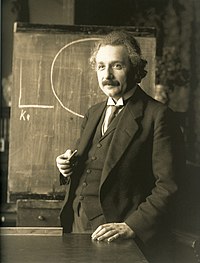
Photo from wikipedia
In this article, we study the optimality of control policies admitting certainty equivalence or separation (of estimation and control) in discrete-time stochastic control, with the following two main contributions. We… Click to show full abstract
In this article, we study the optimality of control policies admitting certainty equivalence or separation (of estimation and control) in discrete-time stochastic control, with the following two main contributions. We first revisit the influential theorem given in the seminal 1974 paper by Bar-Shalom and Tse, which studies the equivalence between certainty equivalence (CE) and no-dual-effect (NDE) properties in discrete-time stochastic control problems involving a linear dynamic system with a possibly nonlinear measurement function. We show that there is a subtle error in Bar-Shalom and Tse’s proof of the claim that CE implies NDE. Moreover, we prove that the claim does not hold by providing a counterexample. As our second and primary contribution, we introduce an alternative and a more relaxed notion of dual freeness and establish that this new notion is sufficient to guarantee the separation of estimation and control and CE in the same control problem considered by Bar-Shalom and Tse.
Journal Title: IEEE Transactions on Automatic Control
Year Published: 2023
Link to full text (if available)
Share on Social Media: Sign Up to like & get
recommendations!